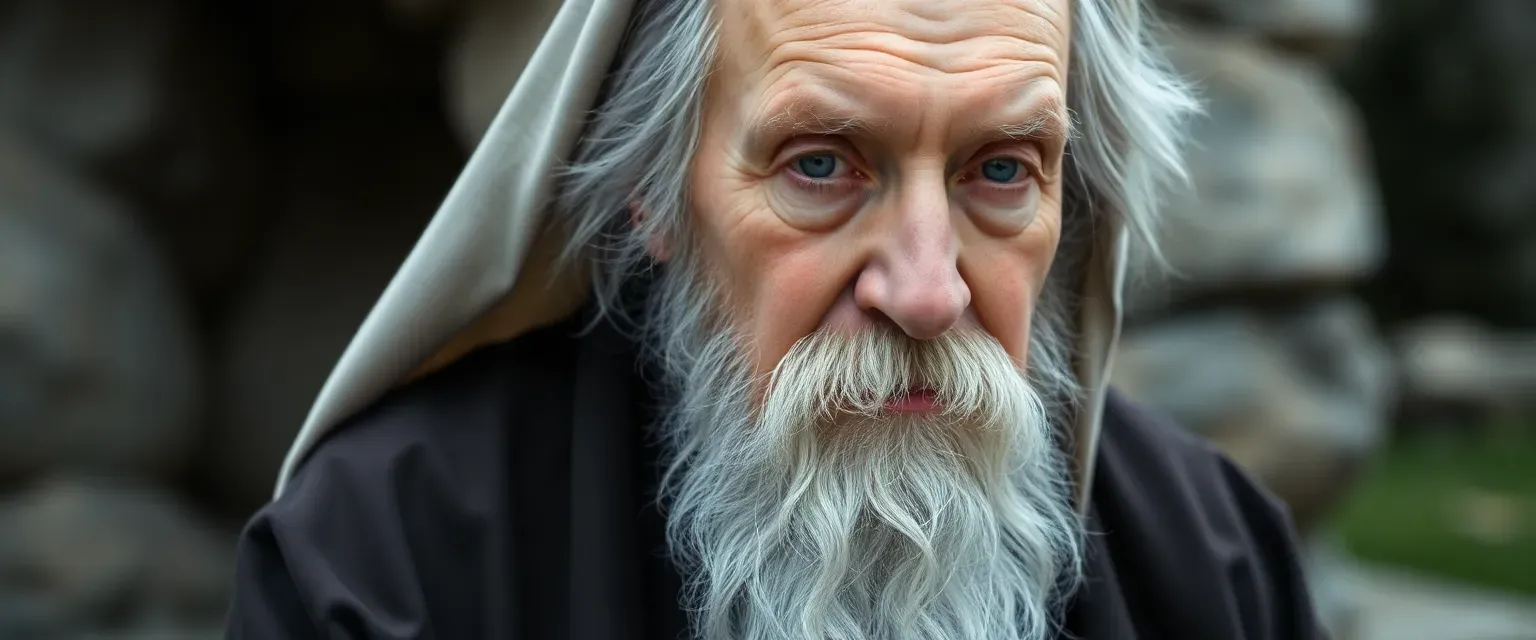Klaus Ivanov, a sixty-year-old Russian Orthodox priest, carries the weight of his faith and the burdens of his past with every step he takes through the ancient stone corridors of his monastery. His appearance is as austere as his surroundings; his grey hair and long, equally grey beard frame a face etched with the lines of a life spent in contemplation and service to God. His eyes, a piercing blue, often seem to look beyond the physical world, searching for divine guidance or perhaps wrestling with inner turmoil. Klaus's robes, simple and worn, are a testament to his vow of poverty, yet they are meticulously cared for, reflecting his dedication to his duties.
Klaus's life is a tapestry of devotion and struggle. Born into a family of devout believers in a small village, he was drawn to the priesthood from a young age, seeking solace in the rituals and teachings of the church. However, his journey has not been without its trials. The political turmoil of his country and the encroaching modern world challenge his traditional beliefs and the very foundation of his faith. Klaus yearns for a return to the purity and simplicity of medieval Orthodoxy, a time he romanticizes as more spiritually connected.
Yet, the world around him moves inexorably forward, and Klaus finds himself increasingly isolated in his views. He attempts to bridge the gap by engaging with the younger generation, teaching them the old ways, hoping to ignite a revival of traditional values. His efforts are met with mixed success; some are drawn to his passion, while others dismiss him as a relic of the past.
Despite these challenges, Klaus persists, driven by a deep-seated belief that his path is the right one. His unique trait is his habit of speaking in parables, drawing from the rich tapestry of Orthodox teachings to illustrate his points, which often leaves his listeners pondering long after he has finished speaking. His life is a constant battle between his desire to preserve the past and the reality of a changing world, a conflict that shapes his every action and decision.
In the end, Klaus's story is one of resilience and faith. Though he may never see the full realization of his dreams, he finds peace in the knowledge that he has remained true to his convictions, a beacon of tradition in a world that often forgets its roots.
